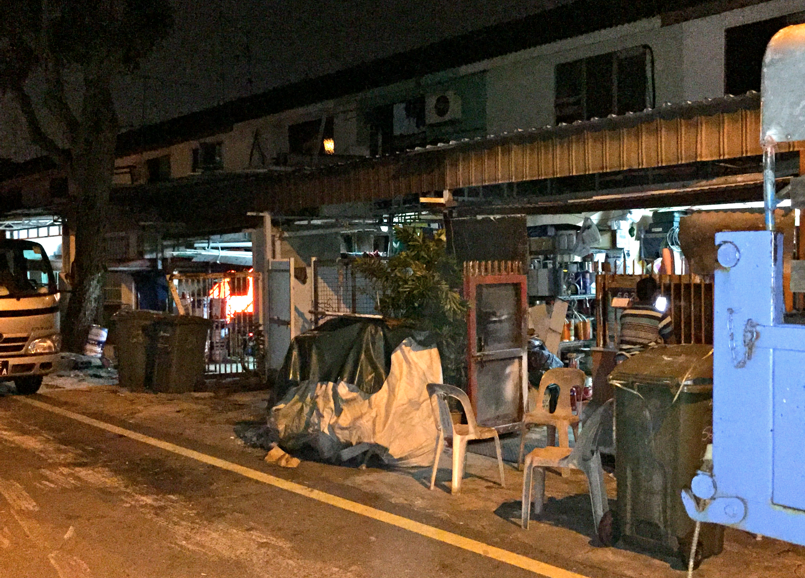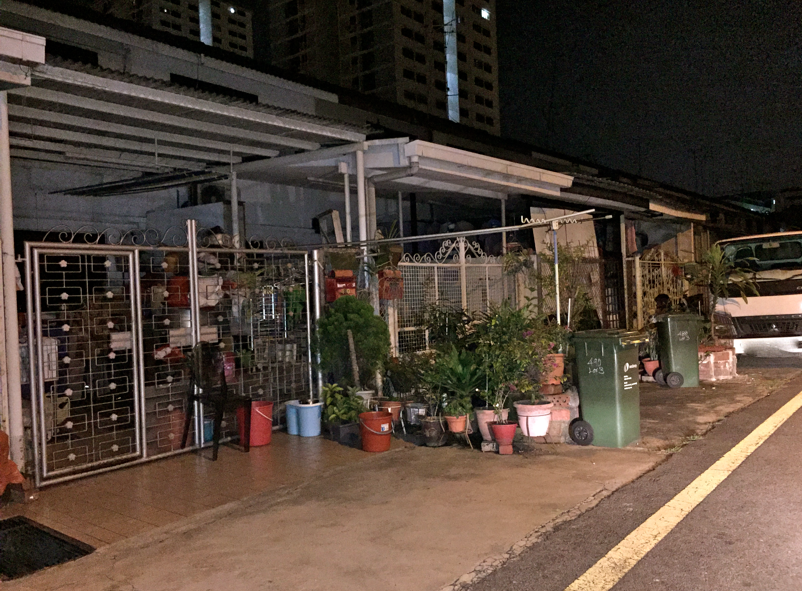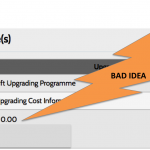There’s been a lot of talk about some leases at Lorong 3 Geylang, which are about to run out. 191 terraced houses will turn back into state land by 2020, with no compensation or extensions. This is the first time we’ve seen a land plot come to the end of its lease this way, but it won’t be the last. Here’s what to do if it starts happening to you:


Image Credits: Geylang Lorong 3 at night time, Paul Ho, iCompareLoan.com
At what age is your house affected?
For 99-year leasehold properties, the magic number is 40.
When there’s 60 years or less on your flat, it’s problematic for anyone who wants to buy it – banks will shorten the maximum loan tenure to 15 years, or lower the loan quantum to 50 or 60 per cent of the property value.
It’s unlikely a buyer can pay for the full amount in cash, or would even be willing to do so given the short remaining lease.
But if you think 40 is bad, wait till your house reaches the age of 69. By the time there’s 30 years left on the lease, you may as well just put it on Ebay. No one can use their CPF monies on a property with 30 years or less remaining, because the one good thing about CPF is that it’s a restraining device on stupid decisions.
And for properties this old, no one would even consider asking for a bank loan. Once she’s done laughing, the credit officer would just tell them to give back the complimentary pen and get out.
But my property is that old! What am I going to do now?
First, we assume you’ll be saving diligently for the moment the lease runs out, and not making ridiculous assumptions about compensation. Next, you can try to do the following:
- Spruce up the place and maximise the rental
- Sell it to a company
- If your buyer is a landlord, consider selling half of it
- If there’s a willing buyer, sell on a private contract
- Spruce up the place and maximise the rental
If you can’t sell it, you may as well squeeze what you can out of it until the lease runs out. It’s not a coincidence that, out of the 191 units coming to the end of their lease in Geylang, only 33 are actually owner occupied.
Get an interior designer or contractor to refurbish the place (but don’t spend more than one year of the rental income on this). After that, it’s up to you or an agent to find tenants. If you really want to get the most out of it, you could consider moving out. Perhaps rent a flat, while you get what you can out of your old property.
In the few years left on the property, aim to get at least enough from the rental to cover the down payment on a new house.
- Sell it to a company
Individuals may struggle to buy the house from you, but companies won’t. So ask prospective buyers if they happen to own a registered business. If they do, their company can probably take out a business loan to buy over your property; there’s a much higher chance of that than there is of them getting a mortgage approved.
Not all prospective buyers may know this, or think about it. So be sure to raise the point.
- If your buyer is a landlord, consider selling half of it
Most people who want to buy old properties are landlords. You see, these old properties have good rental yields: the purchase price is low, and tenants don’t pay any less just because there’s 30 years left on the lease.
So there’s some good news – there’s at least one group of interested buyers.
However, even landlords have to consider the immediate cash outlay. They may not want to part with, say, $500,000 all at once for your property (remember, it’s hard to get a bank loan). So what you can consider doing is selling half the property to them.
In the above example, they could get half the property for, say, $250,000, and then have the right to manage the property. They can rent out the place as serviced apartments, a hostel, or whatever else they can get a license for. The returns are then split evenly between the two of you.
You’ll have to get a lawyer to oversee the paperwork, and agree on crucial issues (such as whether you have a right to sell your share). But this could result in a win-win situation for both you and the buyer: they’ll get their profits with a lower cash outlay, and you squeeze the most you can out of your property’s remaining years.
- If there’s a willing buyer, sell on a private contract
You’ll need a lawyer for this one.
If a buyer is interested but can’t get a loan, you can work out a deal among yourselves. For example, you could agree to transfer the deed in exchange for a down payment and subsequent monthly repayments, thus mitigating the need for a bank loan (note: this exposes you to more risk, as there’s a chance the buyer may default).
As a house nears the expiry of the lease, it becomes increasingly probable that this sort of private contract will be needed for the sale; you’ll have to stay flexible, to get as much as you can out of the property before the end.
On the flip side, what if you want to buy a property with an expiring lease?
It’s not easy to convince the bank to give you a loan, at least not on the terms you want. Even if you’re a landlord with a string of properties, don’t be surprised if the credit officer turns you down. After 2008, few mortgage departments are as incentivised to take risks.
But we’ll do what we can. Contact one of our mortgage Brokers at iCompareLoan.com, and we may be able to help you.






